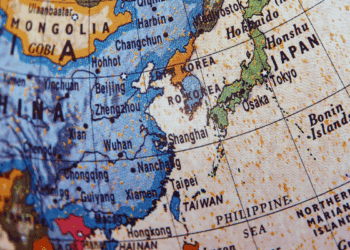June 7, 2012 – In a new op-ed published in the Vancouver Sun, MLI’s Brian Lee Crowley and Robert Murphy respond to recent study released by The Pembina Institute that warns of the “economic downsides” of oil-sands development. Crowley and Murphy write, “The study overlooks offsetting fiscal benefits of the petroleum boom, including jobs and federal revenue.” The op-ed is based on a larger MLI study released on May 30th entitled, No Dutch Treat: Oil and Gas Wealth Benefits All of Canada. It is the first in the High Dollar Series of Commentaries on the benefits of the Canadian petroleum industry.
Dutch disease not a Canadian issue
By Brian Lee Crowley and Robert Murphy, Vancouver Sun, June 7, 2012
A study recently released by The Pembina Institute warns of the “economic downsides” of oil-sands development. The study bolsters the “Dutch disease” charge put forth by New Democratic Party leader Thomas Mulcair and others, claiming that the oil boom hurts the manufacturing sector. The Pembina study also charges that the petroleum sector benefits from preferential tax treatment.
In contrast to these claims, The Macdonald-Laurier Institute recently released a report showing that the oil boom creates manufacturing jobs in Ontario and other provinces, and provides large flows of tax revenue to the federal government.
“Dutch disease” refers to the experience of the Netherlands in the 1970s. The argument is that the worldwide commodity boom leads to strong demand for Canadian resource exports, which drives up the Canadian dollar against other currencies. The stronger dollar makes Canadian goods more expensive to foreign buyers, hurting Canadian manufacturers. This is the mechanism underlying Mulcair’s warnings, and it is why the Pembina study refers to “clear winners and losers” from what it dubs “oilsands fever.”
There is academic literature laying out the theoretical possibility of so-called Dutch disease. Yes, other things being equal, a stronger Canadian dollar makes it harder for Canadian manufacturers to export their goods. Yet when it comes to oilsands development, other things are not equal. The surging demand for Canadian resource exports has spurred massive growth in the Canadian energy sector, which in turn leads to demand for manufactured goods. In other words, high worldwide demand for oil leads to a high domestic demand for Canadian manufacturing.
In our study, we surveyed the literature to quantify these effects. A 2009 study from the Canadian Energy Research Institute (CERI) projected that from 2008 to 2033, the Canadian petroleum industry would increase total economic activity by $149 billion in Ontario alone, and another $49 billion in Quebec. Furthermore, the CERI model estimated that petroleum activity would stimulate enough demand to create the equivalent of 88,000 full-time jobs just in Ontario, and another 32,480 full-time jobs in Quebec, lasting the entire 25 year period.
Beyond these broad projections, the news is full of supporting anecdotal evidence. For example, Toronto-based Berg Chilling Systems Inc. has been supplying equipment to Western Canada’s petroleum sector, including Suncor Energy Inc. and two chemical plants in Alberta. Martin Lavoie of the Canadian Manufacturers and Exporters (CME) association says, “Mining, oil and gas is driving the growth in manufacturing,” and explains that CME “is a big supporter of the big pipeline projects in the north and the major oil and gas developments.”
To get a sense of how Canadian manufacturers benefit from the strong nearby petroleum sector, consider: From 2007 to 2011, the United States shed 2.1 million manufacturing jobs, a drop of 15.5 per cent in just four years. In contrast, over the same period Canadian manufacturing lost 270,700 jobs, a drop of 13.3 per cent. Of course, there are many variables affecting economic growth, but these figures are awkward for the Dutch disease theory, since the U.S. is the world’s largest net importer of oil.
Further, North Dakota is the state with the lowest unemployment rate (at 3.0 per cent) in the United States, thanks in part to its own mineral deposits. If the U.S. only had more energy-rich states like North Dakota, its manufacturing woes would quite likely have been alleviated during the recession.
Beyond the allegation of creating “clear winners and losers” in Canada’s economy, the Pembina study also claims that supposedly preferential federal tax treatment of oil and gas “exacerbate [the] regional imbalance” from the distribution of natural resources among the provinces.
Now, it is certainly true that there are inefficiencies in Canada’s tax arrangements; economists can spot problems with every tax system on the planet. On the other hand, Jack Mintz, one of the country’s leading taxation experts, has argued convincingly that the oil and gas sector does not get preferential tax treatment.
Even if it did, though, the Pembina study overlooks the offsetting fiscal benefits of the petroleum boom. The same 2009 CERI study estimated that from 2008 to 2033, the petroleum industry would generate $409 billion in federal revenue. Even if we include the royalty payments earned by the western provinces, the CERI model estimates that the federal government still reaps 36 per cent of all government revenues attributable to petroleum development.
The recently released Pembina Institute study is right to want to consider the full picture of oilsands development. That report, however, fails its own test.
Our analysis leads us to conclude that, on the issues of manufacturing jobs and tax flows, Canadians in every part of the country benefit from the rapid development of Canadian resources.
Brian Lee Crowley and Robert P. Murphy are the authors of No Dutch Treat: Oil and Gas Wealth Benefits All of Canada, the first essay in a series published by The Macdonald-Laurier Institute exploring the economics of natural resources and the rise of the Canadian dollar, available at www.macdonaldlaurier.ca




